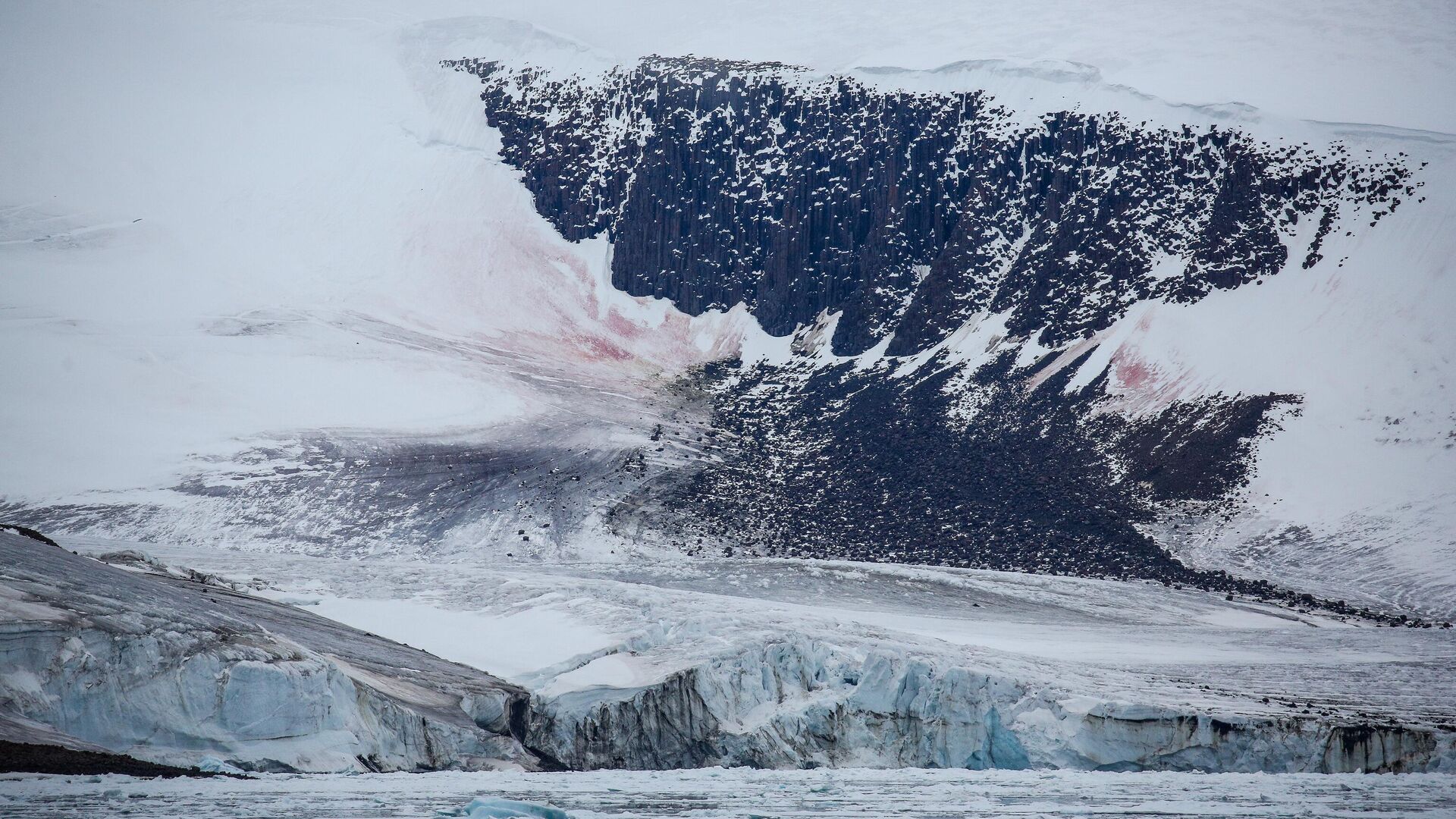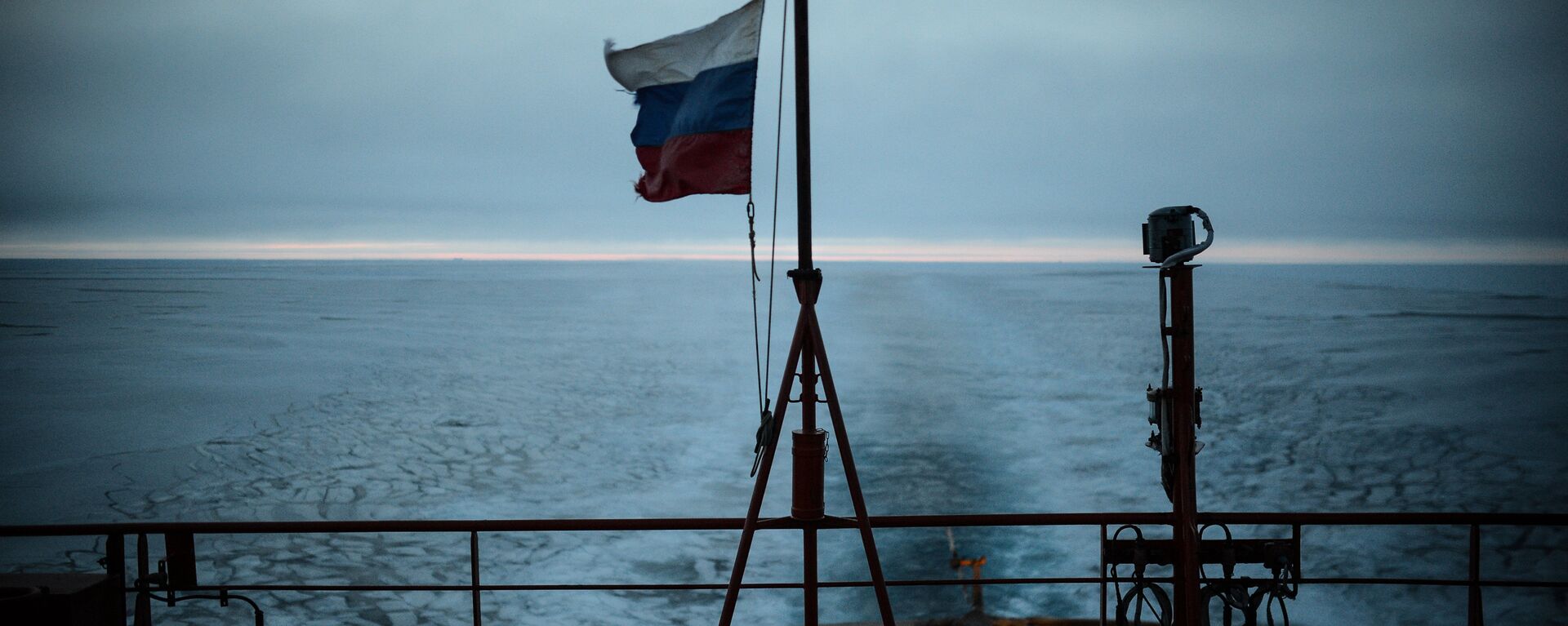https://sputnikglobe.com/20240327/russia-to-adjust-arctic-strategy-in-line-with-changed-intl-context-1117581078.html
Russia to Adjust Arctic Strategy in Line With Changed Int'l Context
Russia to Adjust Arctic Strategy in Line With Changed Int'l Context
Sputnik International
Russia will adjust its Arctic development strategy through 2035 in the wake of the changed international context and its relations with the near-Arctic and Arctic nations, the Russian Ministry for the Development of the Russian Far East and Arctic said on Wednesday.
2024-03-27T11:52+0000
2024-03-27T11:52+0000
2024-03-27T11:52+0000
world
arctic
russia
arctic council
strategy
alexei chekunkov
https://cdn1.img.sputnikglobe.com/img/07e7/04/0c/1109398526_0:160:3072:1888_1920x0_80_0_0_9af581348c87cf3388ecd72c873c7052.jpg
"The basic documents for Arctic development were adopted from 2020-2021. We understand that life has changed, that there is a different international context, a different context of cooperation among the near-Arctic and Arctic states," the head of the ministry, Alexei Chekunkov, said at a meeting with Russia's lower house Far East and Arctic development committee. Russia's Arctic development strategy was signed by President Vladimir Putin in October 2020. The document sets the main courses, goals and measures for developing the Arctic region as well as mechanisms, expected results and stages of its implementation, which include three periods: from 2020-2024, 2025-2030 and 2031-2035. In recent years, Russia has on many occasions expressed its concerns about increased NATO military activities in the Arctic, saying that there was a risk of unintended clashes in the region. Moscow has also allowed for the possibility of withdrawing from the Arctic Council if its activities do not meet Russia's interests. The Arctic Council is an intergovernmental forum that addresses challenges faced by the nations and indigenous peoples of the region. There are eight members of the council — Canada, Denmark, Finland, Iceland, Norway, Russia, Sweden, and the United States. In March 2022, after the beginning of the Russian military operation in Ukraine, all members of the council aside from Russia announced that they would not participate in the meetings held under the Russian chairmanship. In June 2022, the seven countries agreed to partially renew their participation in the projects Russia is not involved in, with Moscow calling their decision "illegitimate." In May 2023, the chairmanship of the council passed from Russia to Norway. In February 2024, the Russian Foreign Ministry told Sputnik that Moscow had temporarily stopped paying annual contributions to the Arctic Council "until practical work in this format is resumed with the participation of all council members."
https://sputnikglobe.com/20240308/first-methanol-fueled-arctic-ships-may-appear-in-russia-by-2030-1117210946.html
arctic
russia
Sputnik International
feedback@sputniknews.com
+74956456601
MIA „Rossiya Segodnya“
2024
Sputnik International
feedback@sputniknews.com
+74956456601
MIA „Rossiya Segodnya“
News
en_EN
Sputnik International
feedback@sputniknews.com
+74956456601
MIA „Rossiya Segodnya“
Sputnik International
feedback@sputniknews.com
+74956456601
MIA „Rossiya Segodnya“
arctic development strategy, russia, near-arctic and arctic nations, russian far east and arctic
arctic development strategy, russia, near-arctic and arctic nations, russian far east and arctic
Russia to Adjust Arctic Strategy in Line With Changed Int'l Context
MOSCOW (Sputnik) - Russia will adjust its Arctic development strategy through 2035 in the wake of the changed international context and its relations with the near-Arctic and Arctic nations, the Russian Ministry for the Development of the Russian Far East and Arctic said on Wednesday.
"The basic documents for Arctic development were adopted from 2020-2021. We understand that life has changed, that there is a different international context, a different context of cooperation among the near-Arctic and Arctic states," the head of the ministry, Alexei Chekunkov, said at a meeting with Russia's lower house Far East and Arctic development committee.
Russia's Arctic development strategy was signed by President Vladimir Putin in October 2020. The document sets the main courses, goals and measures for developing the Arctic region as well as mechanisms, expected results and stages of its implementation, which include three periods: from 2020-2024, 2025-2030 and 2031-2035.
In recent years, Russia has on many occasions expressed its concerns about increased NATO military activities in the Arctic, saying that there was a risk of unintended clashes in the region. Moscow has also allowed for the possibility of withdrawing from the Arctic Council if its activities do not meet Russia's interests.
The Arctic Council is an intergovernmental forum that addresses challenges faced by the nations and indigenous peoples of the region. There are eight members of the council — Canada, Denmark, Finland, Iceland, Norway, Russia, Sweden, and the United States. In March 2022, after the beginning of the Russian military operation in Ukraine, all members of the council aside from Russia announced that they would not participate in the meetings held under the Russian chairmanship. In June 2022, the seven countries agreed to partially renew their participation in the projects Russia is not involved in, with Moscow calling their decision "illegitimate." In May 2023, the chairmanship of the council passed from Russia to Norway. In February 2024, the Russian Foreign Ministry told Sputnik that Moscow had temporarily stopped paying annual contributions to the Arctic Council "until practical work in this format is resumed with the participation of all council members."



